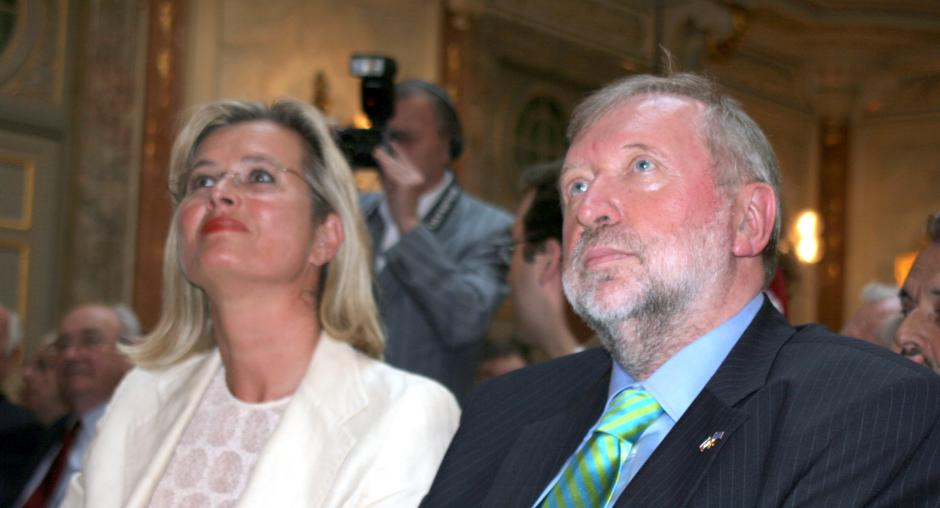OSCE Chairman calls for Partnership for Prosperity in OSCE region

VIENNA, 20 July 2005 - The OSCE Chairman-in-Office, Slovenian Foreign Minister Dimitrij Rupel, called on Wednesday for a "Partnership for Prosperity" to boost economic development in the post-communist countries of the OSCE region.
Addressing a conference in Vienna marking the 30th anniversary of the Helsinki Final Act, he said there was a need for further integration of the community of 55 nations which made up the OSCE.
"What we need most is a Partnership for Prosperity, based on the supposition that the world from Vancouver to Vladivostok has so much in common that it should work together more effectively," he said.
"Whether this will mean extension of the EU towards Ukraine and Russia, or beefing up of the OSCE, is less important. The important issue here is how to protect and develop the stabilization and economic progress in places like the Caucasus, Eastern and South-Eastern Europe, and Central Asia."
The OSCE Chairman said the successes of the OSCE and its forerunner, the Conference on Security and Co-operation in Europe (CSCE), in the human dimension of security now needed to be duplicated in the political-military and economic dimensions.
"The OSCE has developed a sophisticated system of election monitoring and assistance with introduction of democratic standards," he said. "But since we live in a fast-changing and challenging world that threatens to end the era of positive development of the last 30 years, we should reach the same standards also in economic and security assistance.
Minister Rupel said the CSCE/OSCE had been one of the central actors of political change since 1975.
"The CSCE/OSCE changed the world," he said. "It brought together all those with an interest in European security to help reduce tensions and to talk about the issues that divided them. This helped the process of detente and built trust and confidence. It linked human rights and security and was an inspiration for dissidents to hold their leaders to account."
In the last thirty years the political balance in Europe had shifted, but the 55 OSCE states still needed to work together to promote security through co-operation.
"We need to maintain a baseline of common values," the OSCE Chairman said. "We need to work together to tackle common threats to our security, like terrorism, trafficking, organized crime and the dangers of extremism and intolerance. There are still conflicts that need to be resolved, and fragile situations that need to be watched and supported. The OSCE has a lot to contribute to a changing world."
"The OSCE has already managed to turn the tide of repression and suppression in Eastern Europe," Minister Rupel added. "Today we are deeply committed to bringing reforms and democracy to Central Asia."
